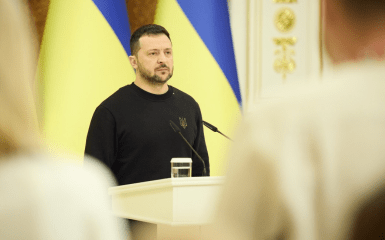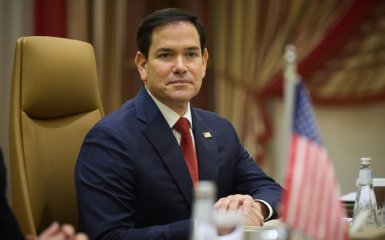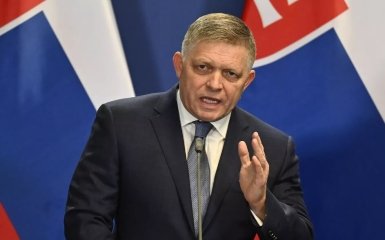Two Ukrainian priests were released from Russian captivity on June 28. This was achieved through the mediation of the Vatican.
Points of attention
- The Vatican's mediation was instrumental in securing the release of two Ukrainian priests of the UGCC from Russian captivity, emphasizing the importance of international cooperation.
- President Zelenskyy expressed gratitude for the Vatican's assistance and stressed the collaborative efforts that led to the return of Ukrainian prisoners, including political prisoners, civilians, and clergy.
- The release of captives from Russia marks a significant milestone in safeguarding human rights and supporting Ukrainian citizens, underscoring the ongoing efforts to bring back all individuals still held captive.
- The return of ten Ukrainians, including UGCC priests, political prisoners, and civilians, to Kyiv symbolized a moment of joy and reunification with their loved ones after years of captivity.
- The 53rd exchange involving the release of captives such as the priests, political prisoners, and civilians demonstrates the ongoing challenges faced by Ukraine and the continued need for international support and cooperation.
The Vatican was a mediator in the release of Ukrainian priests from captivity — Zelenskyi
These days, we were able to accomplish a task that seemed almost impossible to many. We returned 90 of our soldiers and ten civilians from Russian captivity. And among them Christian priests — Bohdan Geleta and Ivan Levytskyi. They are here with us now. I would really like to welcome them all.
This was stated by the President of Ukraine Volodymyr Zelenskyi during his speech at the National Prayer Breakfast.
The President noted that two priests served in the parish of the Nativity of the Most Holy Theotokos of the Ukrainian Greek Catholic Church in Berdyansk, Zaporizhzhia region. On November 16, 2022, the occupiers captured them and kept them captive ever since.
Zelenskyi said that it was possible to release the clergy thanks to the help of the Vatican.
Thanks to the efforts of our team and the mediation of the Vatican, for which I am especially grateful, thank you very much, we managed to return them to freedom. We believed that it would succeed. We worked for it. And in the same way, you and I must not give up and fight to bring home everyone, all our people who are still in Russian captivity, all Ukrainian children who were kidnapped in the occupied territory and forcibly deported to Russia.

Volodymyr Zelenskyi
President of Ukraine
The Deputy Chairman of the Mejlis Dzhelal and the priests of the UGCC were returned from captivity in the Russian Federation
Ten Ukrainians, who were released from Russian captivity on June 28, returned to Kyiv.
Freed Ukrainians who arrived in Kyiv were met by relatives, representatives of the authorities and the clergy.
Smiles, hugs and tears in the eyes! Finally home! — informed the GUR of the Ministry of Defense of Ukraine.
The following were returned from Russian captivity on June 28 as part of the 53rd exchange:
Nariman Dzhelal, the deputy head of the Mejlis of the Crimean Tatar people, has been in captivity since 2021;
Valery Matyushenko is a political prisoner who has been in captivity since 2017;
Olena Pieh is an art critic and research associate of the Horliv Art Museum, who has been in captivity since 2018;
Bohdan Gelet, a priest of the Ukrainian Greek Catholic Church, was detained by the Russians in 2022;
Ivan Levitsky, a priest of the Ukrainian Greek Catholic Church, was detained by the Russians in 2022;
Mykola Shvets — a civilian captured on the territory of Belarus;
Natalia Zakharenko, a civilian captured on the territory of Belarus;
Pavlo Kuprienko, a civilian captured on the territory of Belarus;
Lyudmila Honcharenko, a civilian captured on the territory of Belarus;
Kateryna Bryukhanova is a civilian captured on the territory of Belarus.
More on the topic
- Category
- Ukraine
- Publication date
- Додати до обраного












